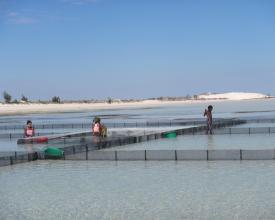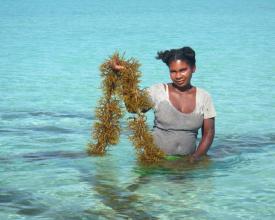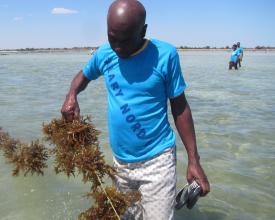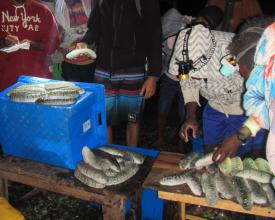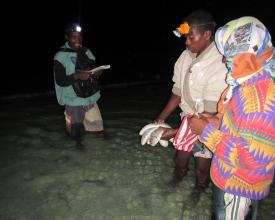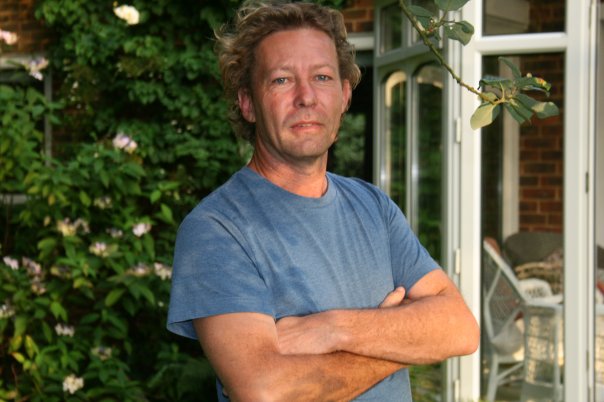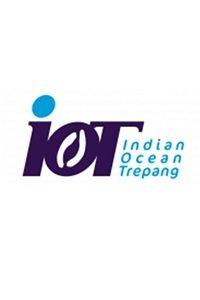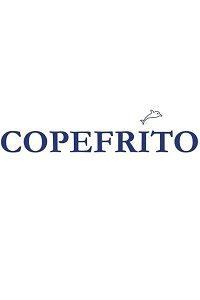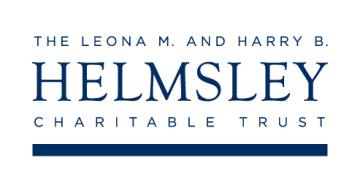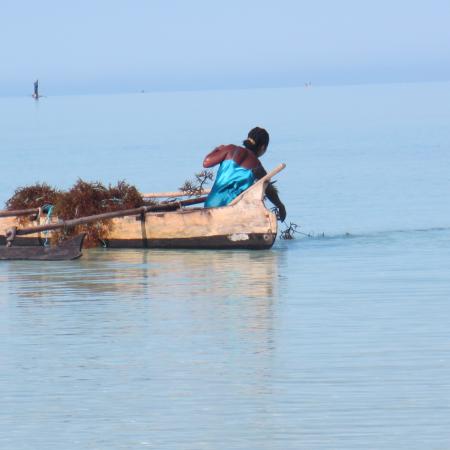
Promoting aquaculture for a better preservation of Soariake Marine Protected Area
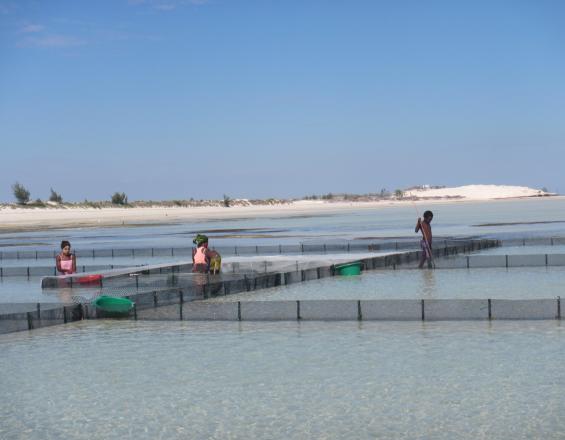
Like most coastal areas in Madagascar, Soariake MPA is located in a remote area where people depend on fishing activities for their subsistence and the lack of alternatives leads to overfishing of marine resources.
In 2016, WCS Madagascar established a partnership with two private companies – COPEFRITO and Indian Ocean Trepan– operating in South West Madagascar to promote aquaculture in Soariake MPA through an industry approach based on “village farmers”. Seacucumber and seaweed farming have been choosen with regards to local context and potential.
For seacucumber farms, IOT provides technical support and seed at a competitive price, and they are committed to buy the harvest. WCS ensures the equipment for the enclosures and the local communities are in charge of the management of the farm. For the seaweed aquaculture, COPEFRITO provides plants, equipment and technical support, the local communities manage the farms and sells the harvest to COPEFRITO.
Contexte
Challenges addressed
Vezo people living in the South West of Madagascar are well known as Malagasy fishers community who rely on traditional and small-scale fisheries mainly in near-shore waters for their livelihood. This Region is among the poorest in Madagascar, where the majority of people earn less than 1USD/day.
During the past decade, the decrease in fish catch (1kg per day) and a high population growth rate, have considerably affected local community livelihood. Thus, there is a need for economic alternatives to alleviate poverty. As Soariake is located in a remote area, people struggle to sell their products and are totally dependent on intermediate sellers who buy the product at the lowest price.
Ecological surveys have shown that the fishable biomass has been reduced by its half during the past decade; currently it is less than the standard 1100kg/ha to ensure its viability. Reducing overfishing practice is crucial to maintain Soariake MPA ecological services, as an ICUN MPA category VI.
Emplacement
Traiter
Summary of the process
Aquaculture within Soariake MPA has a double objective contributing to the conservation of biodiversity and ecosystem services in the MPA while improving local community livelihoods. Thanks to co-management, WCS and the local community have designed the MPA management plan that ensures conservation and sustainable use of Soariake biodiversity, including development activities such as the promotion of aquaculture.
The value chain approach aims to ensure improvement of the local community’s livelihood and support in the different steps of the chain is crucial. This includes strong support in terms of marketing, but also strong technical support to ensure the quality of the final product, to make sure the private sector will buy the final product.
Moreover, the feasibility analysis allows WCS to determine the environmental capacity of the site, and helps the private sector to estimate the profitability of the business. It helps defining a common vision and a value chain approach that is sustainable for the MPA, the communities and the private sector.
Building Blocks
Value chain approach
The farming program covers the whole process from production to marketing, including drying (for seaweed) and storage, to ensure that it will provide the expected quality sell the final product at a fair price to ensure their income. Thus, we collaborate with the private sector through a “village farmer approach”: Ocean Farmers for the seaweed industry, and Indian Ocean Trepan for the sea cucumber industry. In addition to a global partnership between the private sector and WCS, each farmer has an agreement with the private sector that determines each party’s roles.
For the sea cucumber, IOT provides (i) juveniles at a competitive price, (ii) technical support to farmers; and then buys the product to the farmers at an agreed price. WCS ensures (i) raw materials and equipment for the enclosures, and (ii) organizational support to farmers. The farmers manage and look after the farm and the equipment. Farmers’ can commit to more than one production cycle. If they withdraw from the program they must leave the equipment and enclosure to the local association for other farmers.
For the seaweed farmer, Ocean Farmer provides plants, equipment, technical support and buy the product at an agreed price. Villagers manage the farm and build the storage. WCS ensures organizational support.
Enabling factors
- Mutual trust between the three parties, which is a result of long discussions and meetings, understanding and consideration of each party’s interest ;
- Involvement and commitment of villagers to become stakeholder, not only “beneficiaries” : villagers have roles to assume and can not just wait for help, they take part from the first discussions in the process of reaching the agreement with the private sector;
- Partnership with private sector for both marketing and technical support to farmers which are key components of success;
Lesson learned
- Going step by step: working with local communities requires time and patience though they want to get a rapid result. In a context where taking risk is not an option due to high rate of poverty and subsistence activity, it is important to ensure a sustained support to motivated volunteers during the start-up phase. These volunteers will then become ambassadors among their peer in the future;
- Win-win partnership : key important lessons cover (i) a shared vision (development and conservation objective) between all stakeholders, (ii) getting to know its party’s interest and working together to match this interest with the common vision. Those, private sectors have their financial benefit, production and corporate social and environmental responsibility activities implemented, villagers increase their income, WCS ensure the conservation and development impacts of the process;
Technical support
Prior to launching the industry, WCS, Ocean Farmers and IOT have launched a feasibility study on the two industries – seaweed and sea cucumber. The result highlights that Soariake has the highest potential for seaweed farming in the South West, in terms of area and quality of the place. Promotion of sea cucumber is feasible within two villages. Potential for each industry already take into account the environmental assessment of the site.
During the implementation phase, the private sectors provide technicians to each village to support local community during the implementation and management of the farm. Each village has its sea cucumber technician or seaweed technician depending on the available industry in the village.
Due to the innovation of the two industries, local communities need a close and periodic support while starting and managing the farm. Local technician gives practical and on ground training to farmers in terms of plantation (seawed), maintenance and monitoring of the farm. He works closely with the village to plan the site activities; he supervises each farm, advices to farmers when needed. Technician liaises directly with private sector in case of important issues.
The technician works closely with WCS local animators when raising awareness among villagers.
Enabling factors
- Locally based approach regarding technical support: technician should be able to explain to farmers in an accessible way the process while developing the farm. He/she should integrate easily villagers, get familiarized with villagers environment and customs;
- Access to private sector in case of tangible issues: quick response from the private sector gives more insurance to local community
Lesson learned
- Ensuring sufficient number of local technician to cover local needs: a ratio of technician per farmers should be defined in advance. For the seaweed farming which is short cycle production, capacity building is quite easy and quick – the more farmers practice, the better they become in managing the farm. Though a peer to peer support is encourage, support from technician is always important for new farmers;
- Sufficient available area to promote the industry: knowing the technical potential of the site at the beginning of the project is crucial. This information should be used wisely during awareness raising among villagers to determine the approach while selecting the farmers, to define also annually objectives in terms of farmers and location of the farm. Having villagers defining the criteria is a plus, as it will alleviate eventual social issue in the future.
Co-management of Soariake MPA
Soariake is an IUCN category VI MPA, that aims at protecting natural ecosystems while allowing the sustainable use of natural resources. It is currently co-managed by WCS and local community gathered in Soariake Association.
Local communities are at the same time actors and victims of overfishing. As MPA co-manager, WCS is in charge of scientific research and monitoring to assess the value of the site, communicate, raise awareness and support local communities to identify and implement suitable conservation measures, identifying alternatives to better manage natural resources, and identifying key partners if needed. WCS also provides capacity building in terms of project management, social organization and fishing regulation; thus ensuring the integrity of the MPA and the livelihoods of the communities.
WCS also supports the local community to define different zoning of the MPA, local conventions on resource management, ensure patrolling through Community Control and Surveillance, collect fish catch data, and promote alternatives that are environmental friendly.
Community involvement in the management of the MPA is key to build a local ownership, one pillar to warrant sustainability of on ground activities.
Enabling factors
- Building a long term partnership between WCS and the local community to seek for sustainability: a project approach will raise an opportunistic feelings among local community which does not help achieving conservation and development objectives;
- Maintaining support while ensuring the local community would not become dependent on WCS: capacity building, technical support during the implementation of the activities aim ensuring that in the future local community will be able to implement the activities by themselves;
Lesson learned
- Once the industry is developed in a village and the farmers increase, organizational support is also crucial to help farmers organize production, maintain quality standards, negotiate with the private sector, managing the community equipment, ensuring socio-economic monitoring among farmers, and supporting households in managing their income so as to make sure that the benefit from the aquaculture brings advantages to the family;
- Fighting illiteracy should be part of the activity to consider while promoting co-management so as to facilitate the implementation of regulation, the negotiation with partners, to better involved in rural entrepreneurship
Impacts
In August 2017, nine farmers had their first sea cucumber harvest from their farm in Andravona. 250 kg, representing around 40% of the total production were collected and sold to IOT. Farmers earned USD 850 (100USD per farmer), which represents around three months income compared to traditional fishing, adding significant revenue for fishers.
40 households have participated to the launch of seaweed farming in November 2016. The seaweed has a short harvest cycle – 45 days, and provides substantial income to households: around 53USD per month for a farmer at a starting phase (an increase of 75% compared to income from fish catch), and 130USD for those in an advanced stage (3rd cycle).
Thanks to these positive results, we are extending the partnership to implement seven new enclosures in three villages, and to reach around 200 new farmers in seaweed farming. The extension is based on Soariake MPA potential (2ha for sea cucumber and 1500ha for the seaweed farming) and its capacity further to environmental assessment of the MPA. In addition to the business agreement with the farmers, an environmental friendly ruleset has been designed to respect the MPA’s potential: farms will not infringe reefs, coral habitat and sea turtle nesting sites.
The value chain approach, mutual confidence between partners, a transparent and win-win partnership are the key pillars of this project.
Beneficiaries
250 households representing around 1250 people from four communities in Soariake MPA
Sustainable Development Goals
Story

When launching the seaweed industry in November 2016, people were somehow reluctant; they were not sure how the activity will work. We started with mainly women from 41 volunteer households as men are used to fish according to local practice. Farming is considered a women activity. The pilot farms where located in Bekodoy and Ankaramifoka.
Now, less than one year later, more than 100 households from four villages are actively involved in algoculture. Farmers increases by 46% in Bekodoy, and 172% in Ankaramifoka; two new villages have joined the group: Andravona with eighteen farmers and Tsandamba with sixteen farmers.
In Bekodoy, more than 50% of the first farmers have increased their farm up to three times the initial size; which gives them additional income around USD130 (Ar400.000) per month, a huge incentive and motivation for the households who only used to fish for their daily consumption. Farming is now a family business, not a women activity only.
People became aware of the MPA objective: “ensure the protection and long-term maintenance of biodiversity, cultural heritage and environmental services and promote the sustainable use of natural resources to contribute to poverty reduction.” In fact, farming program is among management measures to better ensure conservation of Soariake MPA. To be part of this program, families agree to respect conservation measures: zoning, fishing regulations, monitoring. Those who are currently involved in the seaweed farming will reinforce the promotion of conservation among their peer; which later help improving community involvement and ownership regarding the management of Soariake protected area.
